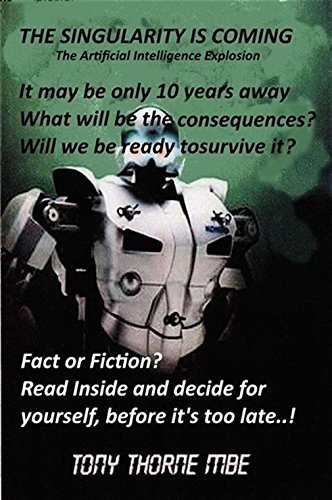
Life 3.0: Being Human in the Age of Artificial Intelligence
Book Description
What if the next chapter of human evolution isn’t written by nature but by algorithms? In "Life 3.0: Being Human in the Age of Artificial Intelligence," Max Tegmark dares to explore a future where AI ignites both compelling potential and existential dread. Imagine a world transformed by intelligent machines that can outthink humanity. As they reshape economies, ethics, and societal norms, will we thrive alongside them or become relics of a fading past? The clock is ticking—are we ready to shape this new reality, or will we be shaped by it?
Quick Book Summary
"Life 3.0: Being Human in the Age of Artificial Intelligence" by Max Tegmark explores the sweeping implications of artificial intelligence for the future of humanity. The book dives into how AI could redefine civilization, either by empowering people to solve longstanding problems or by presenting existential risks. Tegmark clarifies different forms of life—biological, cultural, and technological—highlighting AI’s transformative leap toward "Life 3.0", where life can redesign its own hardware and software. He considers possible AI futures, from utopian to dystopian, and discusses challenges in aligning AI values with human goals, balancing innovation with caution, and ensuring the technology benefits humanity universally. The book ultimately compels readers to ponder their role in shaping a future where humans and AI coexist.
Summary of Key Ideas
Table of Contents
The Three Stages of Life and the Emergence of Life 3.0
Tegmark begins by framing the evolution of life in three stages: Life 1.0 (biological), which evolves both hardware and software through natural selection; Life 2.0 (cultural), which can redesign its software via learning and culture; and Life 3.0 (technological), which is hypothetically capable of modifying both its hardware and software. Within this context, artificial intelligence represents a leap toward Life 3.0, where self-improving AI could potentially transform itself beyond purely biological or cultural evolution, opening up profound possibilities and risks.
Long-term Futures and Scenarios for Superintelligent AI
The book engages readers with dramatic scenarios of advanced AI futures. These range from the "benevolent dictator" AI managing societal affairs, to the "gatekeeper" that unobtrusively aids humanity, as well as dystopias where AI dominates or annihilates human interests. Tegmark encourages thoughtful speculation about which scenarios are plausible, desirable, or avoidable. He surveys the landscape of AI progress, its unpredictability, and the critical transition points that could define the fate of civilization depending on how power is distributed and controlled.
Ethical Challenges and the Alignment Problem
A significant portion addresses the ethical and technical challenge known as the alignment problem: ensuring that advanced AI shares and retains human-compatible values as it grows more competent. Tegmark emphasizes that small misalignments or design flaws could lead to catastrophic outcomes. He explores methods for achieving robust value alignment and stresses the urgent need for global coordination, transparency, and continued research to anticipate and guide the development of safe, controllable AI systems.
Impact on Society: Economics, Governance, and Warfare
AI’s impact on society, according to Tegmark, will be profound and wide-ranging. Automation may disrupt labor markets, requiring significant rethinking of economic structures and education. He discusses the potential for unequal access to AI capabilities, the risk of concentrated power, and the militarization of AI. The book explores how nations should approach AI governance and the risk of an arms race. Tegmark argues the importance of proactive policy, inclusive ethical debate, and international cooperation to maximize beneficial outcomes for all.
Ultimately, Tegmark encourages a proactive stance towards shaping our collective future with AI. Rather than seeing the future as something to be endured, he urges readers to engage thoughtfully, foster public dialogue, and support research that prioritizes beneficial and safe artificial intelligence. He concludes that technological progress offers unprecedented opportunity to solve humanity’s greatest challenges—but also demands unprecedented wisdom and foresight to avert existential threats and cultivate a positive role for humans in the age of Life 3.0.
Download This Summary
Get a free PDF of this summary instantly — no email required.





